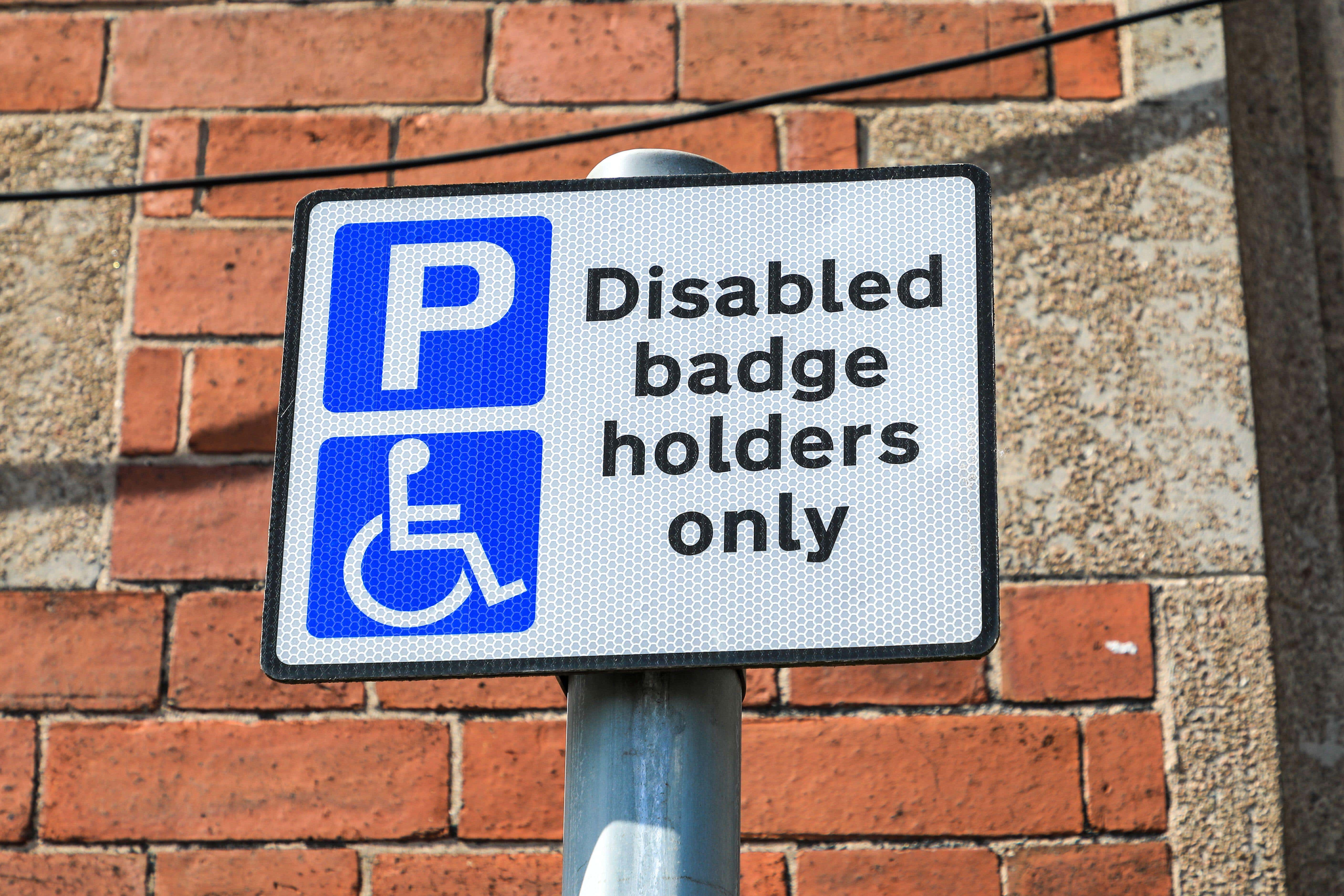More than one in 22 people in England have a blue badge
There were 2.57 million holders of blue badges at the end of March last year, figures show.

More than one in 22 people in England have a disabled parking badge, exceeding the proportion before the pandemic.
There were 2.57 million valid blue badges at the end of March last year, analysis of Department for Transport (DfT) data by the PA news agency and the RAC Foundation found.
That is 4.6% of the population, up from 4.1% in 2019 before the virus crisis.
The eligibility criteria for blue badges was extended in 2019 to include people with non-visible disabilities such as Parkinson’s, dementia and epilepsy.
The number of blue badges now issued reflects their value to disabled people and their families in enabling them to enjoy anything like the convenience and mobility the rest of us probably take for granted
Transport minister Guy Opperman revealed in an answer to a written question in the House of Commons on Wednesday that 1.14 million blue badges were issued in the year to the end of March 2023, an increase of more than 100,000 (9.7%) on the previous 12 months.
Steve Gooding, director of the RAC Foundation, said: “The number of blue badges now issued reflects their value to disabled people and their families in enabling them to enjoy anything like the convenience and mobility the rest of us probably take for granted.
“Anyone grumbling about the number of parking spaces reserved for blue badge holders or, worse, simply disregarding the rules, would do well to remember that one day it could be them struggling to make everyday trips.”
Blue badges, which must be renewed every three years, help people with disabilities or health conditions access shops and services by enabling them to park closer to their destination.
Depending on the location, they often enable holders to park free of charge in pay-and-display bays and for up to three hours on single and double yellow lines.
In London, they exempt holders from having to pay the congestion charge.
The DfT has not published prosecution figures for abuse of the blue badge system for the second year in a row.
This is the second consecutive year that DfT have failed to provide the prosecution figures, which is extremely disappointing
Graham Footer, chief executive of charity Disabled Motoring UK (DMUK), said: “The increase in the number of blue badges issued is highly likely due to the scheme being extended to people with non-visible disabilities.
“What is most concerning for DMUK is the failure of DfT to publish the prosecution figures for blue badge abuse which they used to provide.
“This is the second consecutive year that DfT have failed to provide the prosecution figures, which is extremely disappointing.”
The DfT said data on prosecutions for misuse of blue badges has not been collected since 2021/22 due to the burden on local authorities from providing the statistics.
A spokesperson for the department said: “We are deeply concerned by anyone exploiting the blue badge scheme – a vital resource to help people with disabilities travel with confidence.
“We continue to work closely with local authorities to help them tackle fraud and misuse.”
Bookmark popover
Removed from bookmarks